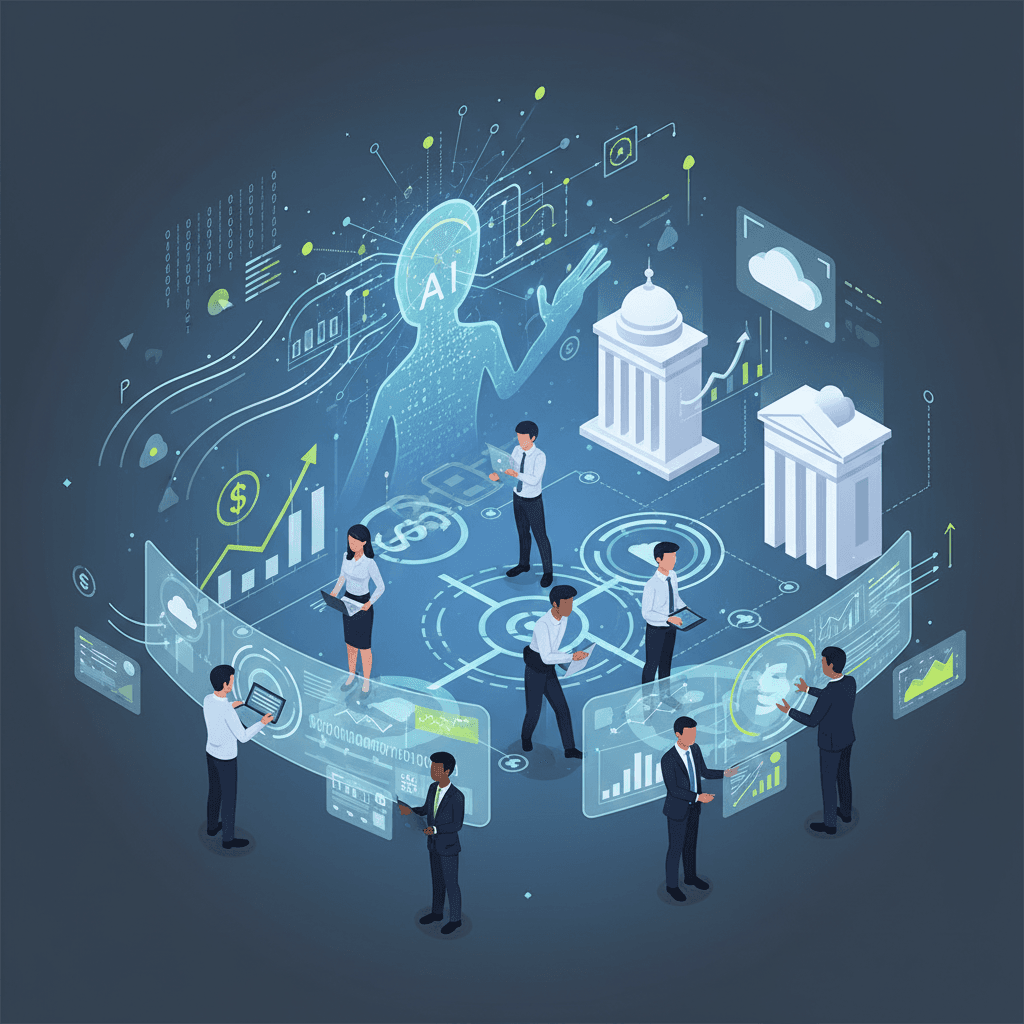Microsoft provides free Copilot AI to feds, sparking billions in savings.
Revolutionizing federal operations: Free AI assistant for millions targets billions in savings and advanced digital government.
September 2, 2025

In a landmark move poised to accelerate the integration of artificial intelligence within the United States federal government, Microsoft has entered into a comprehensive agreement with the General Services Administration (GSA) to provide its Copilot AI assistant to millions of federal employees at no cost for one year.[1][2][3] This initiative is the cornerstone of a broader partnership expected to generate substantial taxpayer savings, estimated at $3.1 billion in the first year alone and potentially exceeding $6 billion over the next three years.[4][5] The deal signals a significant push to modernize government operations, enhance productivity, and place the U.S. government at the forefront of AI adoption, directly aligning with the administration's AI Action Plan.[1][2] By embedding advanced AI capabilities into the daily workflow of public servants, this collaboration aims to transform citizen services, strengthen national security, and drive unprecedented efficiency across federal agencies.[6]
The specifics of the "OneGov" agreement reveal a multi-faceted approach to technological modernization within the federal apparatus.[7] The centerpiece is the provision of Microsoft 365 Copilot for a full year at no additional charge to government workers utilizing the high-security G5 license, a premium tier designed for departments handling sensitive information.[1][6] Beyond the free Copilot offering, the deal encompasses significant, unified discounts across a suite of Microsoft products, including Azure cloud services, Dynamics 365 business applications, and Sentinel cybersecurity software.[4][7] To further incentivize modernization, Microsoft is also waiving data egress fees, addressing a common barrier that has historically slowed down cloud adoption and interagency data sharing.[2] Federal agencies can opt into these offers through September 2026, with the discounted pricing available for up to 36 months for some products, providing a clear and cost-effective path for technological upgrades.[8][9]
A critical component of this large-scale AI deployment is the robust security framework underpinning the services. Microsoft has emphasized that its core cloud and AI offerings have achieved FedRAMP High security authorization, a crucial standard for handling the federal government's sensitive data.[1] While the Microsoft 365 Copilot service currently operates under a FedRAMP Moderate authorization within the company's Government Cloud Community (GCC), Microsoft anticipates receiving the higher-level FedRAMP High certification for the product later this year.[7] The package is further bolstered by the inclusion of advanced security tools like Microsoft Sentinel and Entra ID, which are intended to support the government's "zero trust" security architecture, a modern approach that assumes no user or device is implicitly trusted.[1] This focus on a secure and compliant environment is designed to build confidence among agencies and ensure that the adoption of powerful AI tools does not compromise sensitive government information.[10]
The implications of this agreement extend far beyond cost savings, representing a strategic effort to cultivate a more technologically adept federal workforce. Recognizing that access to tools is only part of the equation, Microsoft has committed an additional $20 million for support, training, and "cost-optimization workshops."[7][1] This investment is designed to help agencies effectively integrate the new AI tools, identify areas to reduce waste, and ensure that employees can leverage the full potential of platforms like Copilot to automate routine tasks, analyze complex data, and collaborate more efficiently.[7][2] This move is part of a larger trend where the GSA is partnering with major technology firms, including Google, Amazon, Salesforce, and AI startups like OpenAI and Anthropic, to secure steep discounts and accelerate the adoption of modern digital tools across all federal departments, fostering a more interoperable and innovative digital ecosystem.[4][7]
In conclusion, the Microsoft-GSA partnership marks a pivotal moment in the digital transformation of the U.S. government. By removing significant cost barriers and providing a secure pathway to AI adoption, the initiative is set to equip millions of federal workers with advanced capabilities to streamline operations and enhance public service delivery.[6][5] The one-year, no-cost access to Copilot serves as a powerful catalyst, intended to spur widespread adoption and demonstrate the tangible benefits of generative AI in a public sector context. The long-term success of this ambitious project will hinge on effective implementation and the workforce's ability to harness these new tools to their full potential, potentially setting a global precedent for how governments leverage artificial intelligence to better serve their citizens.[2][11]